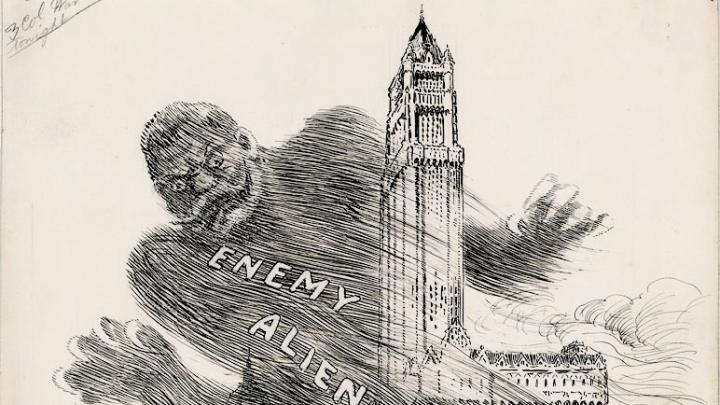The People’s Courts: Pursuing Judicial Independence in America, by Jed Shugerman, assistant professor of law (Harvard, $35). At a time when judges are objects of derision in certain presidential primaries, and subject to heavily funded interest-group campaigns in some states, the author explores the uniquely American practice of judicial elections and the consequences for an independent judiciary—possibly “a new crisis for the rule of law.” Timely and important.
The Power of Habit, by Charles Duhigg, M.B.A. ’03 (Random House, $28). The New York Times investigative reporter examines “Why We Do What We Do and How to Change It” by drawing on business case studies, neuroscience, William James, and more.
But Will the Planet Notice? by Gernot Wagner ’02, Ph.D. ’07 (Hill and Wang, $27). An Environmental Defense Fund economist says frankly that, given the seven billion people on the planet, when it comes to “paper or plastic,” “what you and I do individually does not make the least bit of difference on its own.” Economics, however, can help: witness control of acid rain, removal of lead from gas, et cetera.
How to Read the Qur’an, by Carl W. Ernst, Ph.D. ’81 (University of North Carolina, $30). The Kenan Distinguished Professor of religious studies at UNC Chapel Hill offers non-Muslims a new guide, with select translations, to a fundamental text that is more debated—and feared—than read in contemporary America.
The Assumptions Economists Make, by Jonathan Schlefer (Harvard, $28.95). Behavioral economics is much in vogue—but what about economists’ behavior? The author, a Business School research associate, looks into the assumptions that underlie these social scientists’ seemingly scientific models and finds human frailty, prompting his final recommendation: that the brethren “explain publicly what they do not know.”
New York at War, by Steven H. Jaffe, Ph.D. ’89 (Basic, $29.99). An independent historian probes Gotham as a strategic site shaped by war, from Indian attacks on Henry Hudson through the aerial horror of 9/11. Four centuries of “combat, fear, and intrigue” (as the subtitle has it) make one marvel at the concurrent ability to cope with threats and enable casual tourism.
Visionary Journeys, by Xiaofei Tian, professor of Chinese literature (Harvard University Asia Center/Harvard University Press, $39.95). During the spread of Buddhism in the fourth and fifth centuries, and in the nineteenth century, China and its people collided with outside ideas—as they have again since Deng Xiaoping’s “reform and opening.” A close reading of travel writings from those eras reveals profound cultural impacts. (The author participated in this magazine’s “Changing, Challenging China” roundtable, March-April 2010.)
Henry Friendly: Greatest Judge of His Era, by David M. Dorsen ’56, J.D. ’59 (Harvard, $35). The life, thought, and work of the jurist (’23, LL.B. ’27, LL.D. ’71)—most prominently of the U.S. Court of Appeals for the Second Circuit—are analyzed comprehensively. In the foreword, the Honorable Richard A. Posner, LL.B. ’62, who is in a position to know (Seventh Circuit), says of the work, “[W]e learn more about the American judiciary at its best than we can learn from any other biography.”
The Missing Martyrs, by Charles Kurzman ’86 (Oxford, $24.95). A professor of sociology at UNC Chapel Hill finds Muslim terrorists a marginalized and declining cohort, despite young Muslims’ alienation from perceived Western support for discredited governments in the Islamic world (some of them, of course, now being swept away).
Kayak Morning, by Roger Rosenblatt, Ph.D. ’68 (Ecco, $12.99 paper). A highly personal reflection on grief, following Making Toast, the author’s book about the death of his adult daughter.
The Novel after Theory, by Judith Ryan, Weary professor of German and comparative literature (Columbia, $29.50). Surrounded by literary theory, novelists began to imbibe and incorporate it into their fictions. Ryan examines the results in works by Don DeLillo, Thomas Pynchon, Margaret Atwood, and others.
Demand: Creating What People Love Before They Know They Want It, by Adrian J. Slywotzky ’73, J.D. ’76, M.B.A. ’80, and Karl Weber, B ’91 (Crown Business, $27). A consultant and a business writer examine triggers, trajectories, and launches from Kindle and Teach for America through marvels yet unknown and undesired. They might make a good panel with Charles Duhigg, above, on the intersection with willpower.
Miss Fuller, by April Bernard ’78 (Steerforth Press, $14.99). A short historical novel about Margaret Fuller, journalist and women’s-rights pioneer. It begins with an ending: a shipwreck. (The author, a poet and novelist, was profiled in “Noir Romantic,” November-December 2010.) For voracious readers of a factual bent, pretty nearly all the facts concerning Fuller are in The Lives of Margaret Fuller (Norton, $32.95), a new biography by John Matteson, J.D. ’86, whose Alcott family biography—same era—earned the 2008 Pulitzer Prize.









